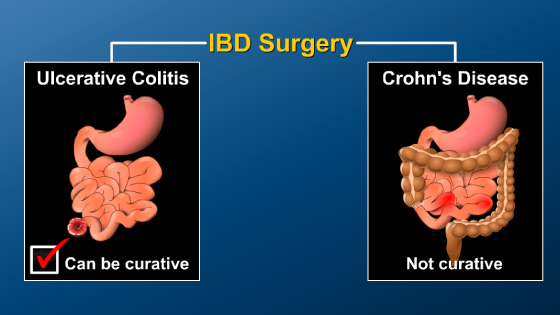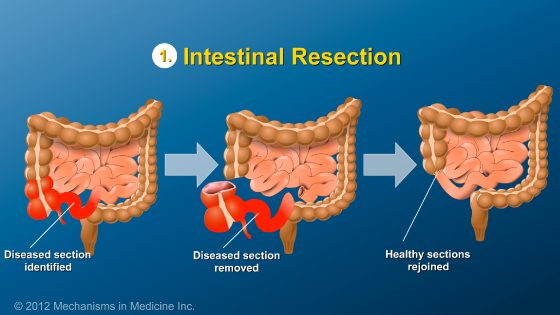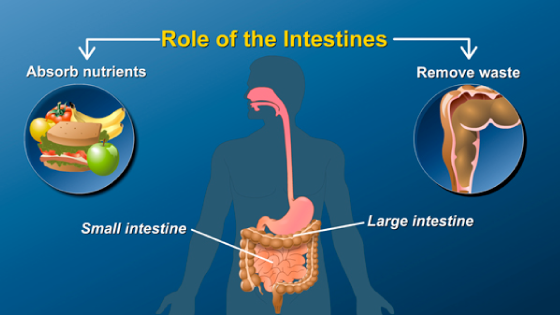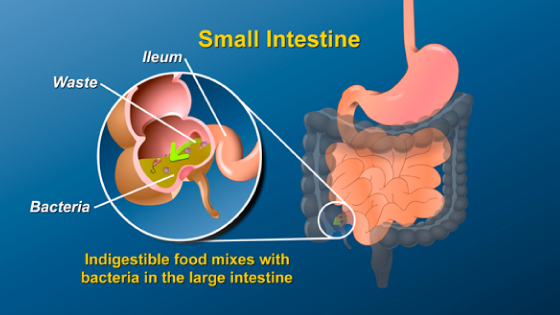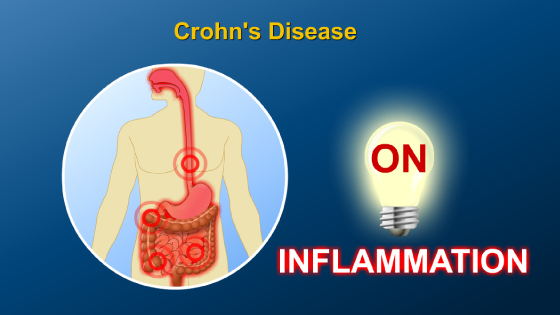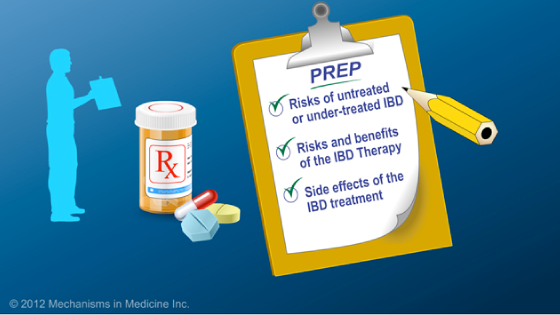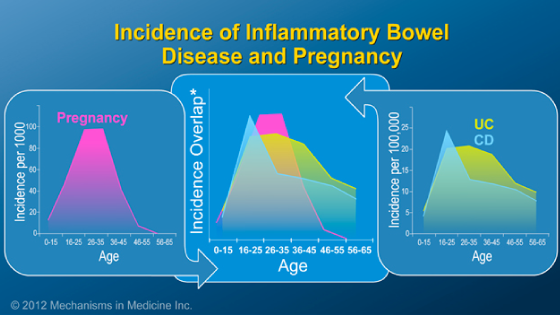*Please note: This slide show represents a visual interpretation and is not intended to provide, nor substitute as, medical and/or clinical advice.
Although medications are available to treat IBD, they may not work for some patients or may need to be stopped due to side effects. In these situations, surgery may be needed to control disease symptoms and restore the patient to good health.
Many IBD patients will need some type of surgery. Surgery may involve either the partial or complete removal of sections of the bowel.
The goal of surgery is to reduce and resolve IBD symptoms.
Following surgery in Crohn’s disease, many patients will still need to take medications to control their disease or prevent recurrence.
Surgery can be curative in patients with ulcerative colitis because only the rectum and colon, which can be entirely removed, are affected. However, surgery is not curative in Crohn’s disease.
Surgery for Ulcerative Colitis (UC)
Patients with ulcerative colitis who have a failure or intolerance of medical treatment, precancerous changes, or cancer development may be candidates for surgery.
The most common surgeries performed for ulcerative colitis are total colectomy with ileal pouch anal anastomosis, or IPAA, or total removal of the colon and rectum with a permanent ileostomy.
An IPAA involves the removal of the colon and most of the rectum, although the rectal and anal sphincter muscles remain intact.
The small bowel is then attached to the anal canal and now takes on the role of a reservoir for stool.
Another option for ulcerative colitis is total removal of the colon and rectum with a permanent ileostomy. This procedure involves removing the entire colon, rectum, and anus and moving the end of the small intestine out through to an opening on the abdominal wall– known as an ileostomy – which allows waste to exit the body.
With an ileostomy, an external bag must be worn over the opening to collect waste and must be emptied several times a day. However, having an ileostomy does not prevent a patient from working, being active, or being sexually active.
Surgery for Crohn’s Disease (CD)
Surgery may be recommended for a patient with Crohn’s disease due to intestinal blockage, rupture of the intestine, abscess or infection, bleeding, and rarely for precancerous or cancer development.
Surgical options available to patients with Crohn’s disease include intestinal resection and stricturoplasty.
In an intestinal resection, which can be performed laparoscopically, the diseased segment of the small intestine is identified and removed. The two healthy segments on either side of the diseased portion are then connected.
Sometimes surgical removal is the best option in Crohn’s disease to “reset the disease” and allow for better control and greater likelihood of response to therapy. It is known that the disease may eventually recur. Patients often need to take medication long-term to control the disease.
A stricturoplasty can relieve obstruction but does not remove any portion of the intestine. The surgeon identifies a portion of the small intestine that has narrowed due to disease, and this segment is widened by making a lengthwise incision, then suturing the two sides together widthwise
A stricturoplasty can relieve obstruction but does not remove any portion of the intestine. The surgeon identifies a portion of the small intestine that has narrowed due to disease, and this segment is widened by making a lengthwise incision, then suturing the two sides together widthwise
This slide show highlights some of the common surgical procedures available to patients with IBD. However, it is not an exhaustive list, and patients should talk with their family and healthcare providers.
This slide show describes surgery for patients with inflammatory bowel disease (IBD) – IPAA, removal of colon, intestinal resection, & stricturoplasty.
-
Share with family and friends:
Click here to take our SURVEY
Your feedback is important to us! We will use your feedback to develop future areas of content about IBD which will help other patients, caregivers and families.

